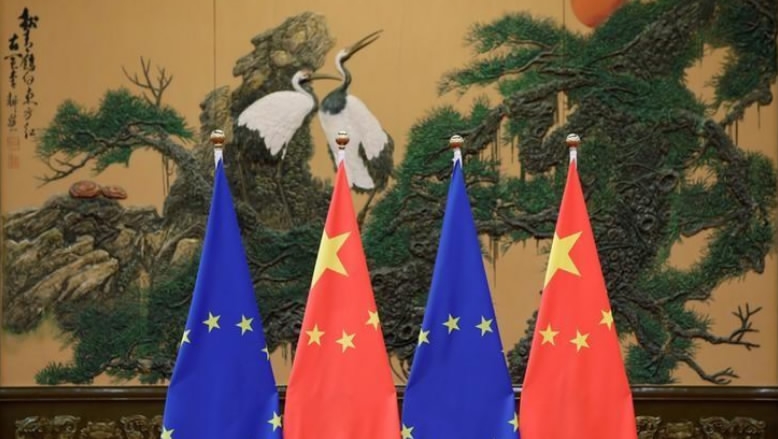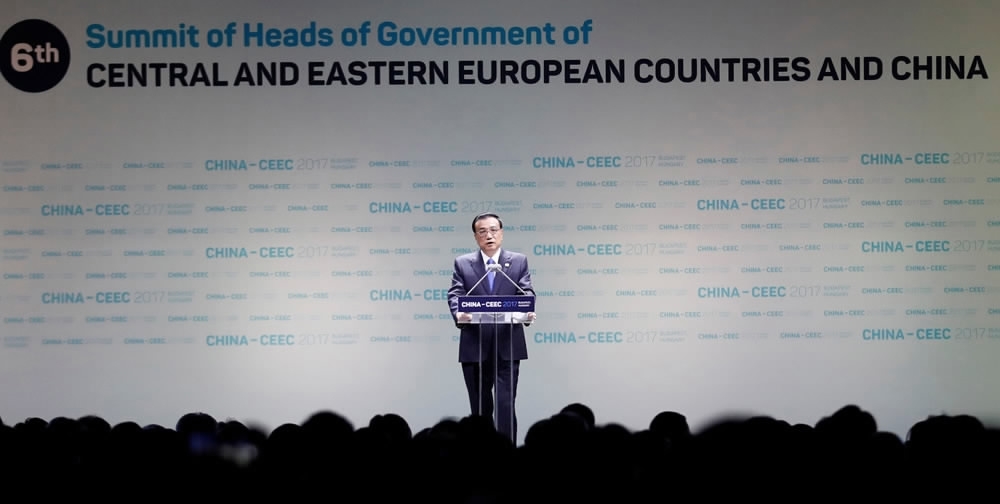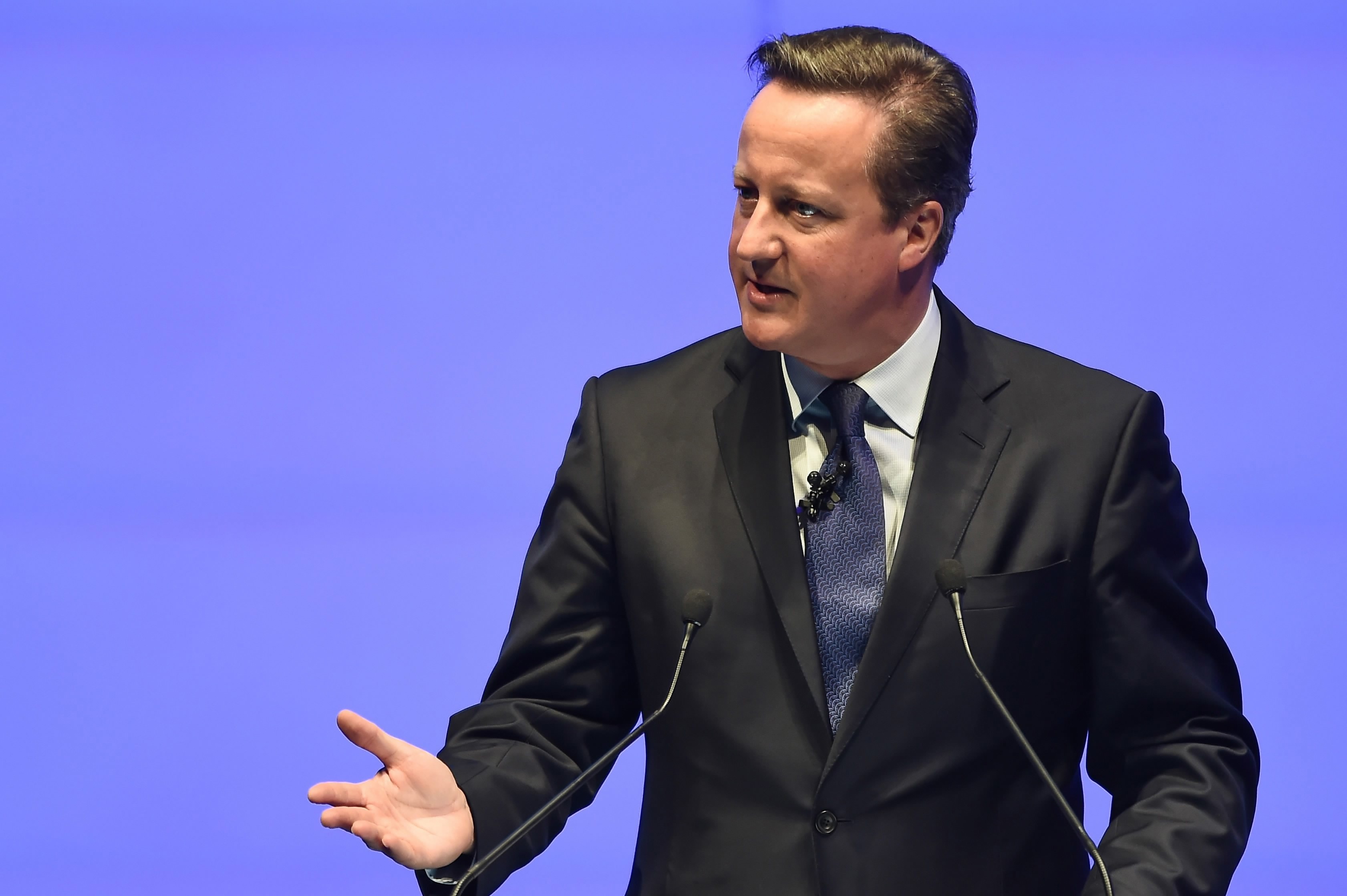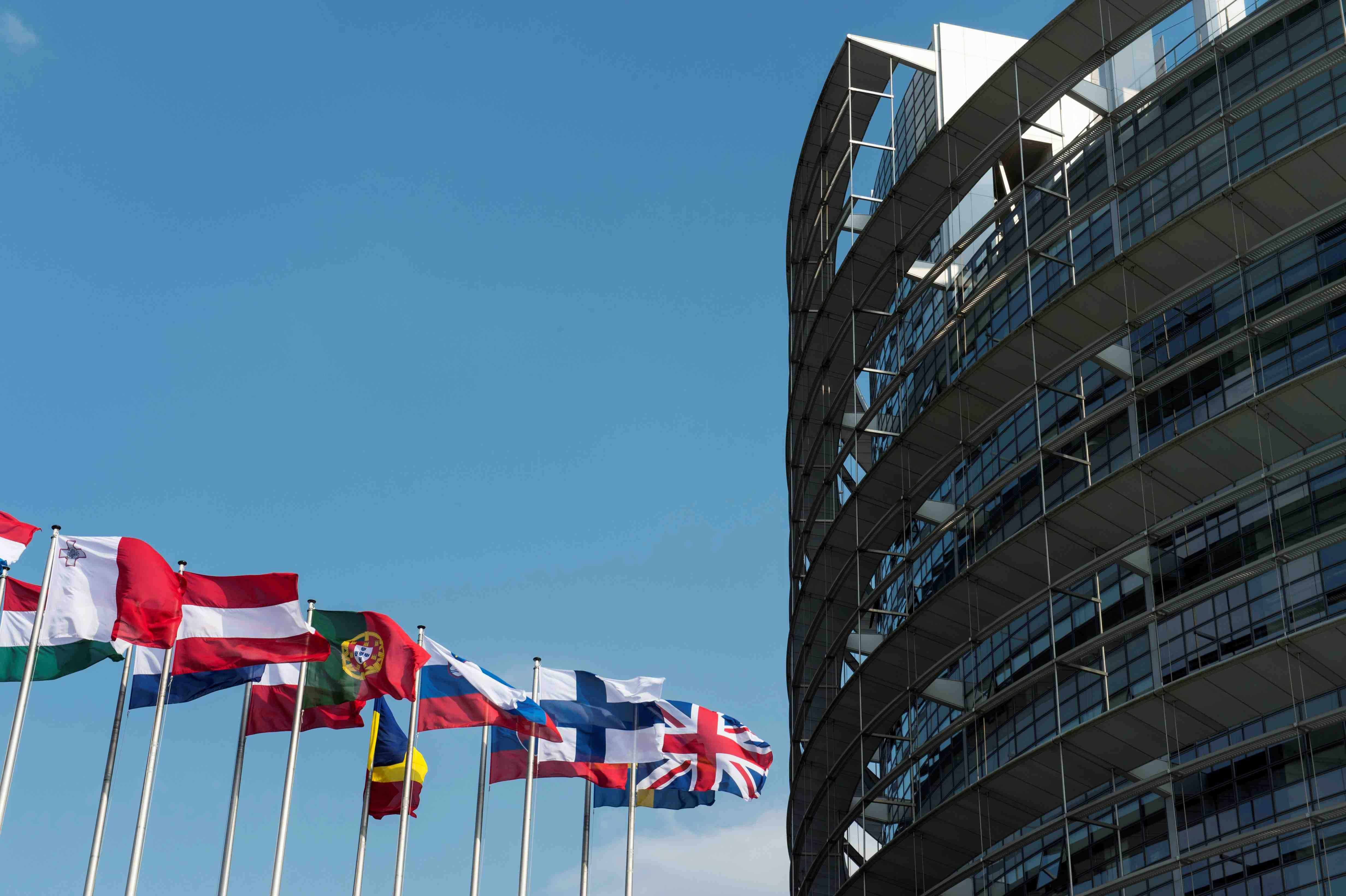
China
16:11, 28-Nov-2017
China backs European Union’s expansion
By Nadeem Gill

As China voiced support for Central and Eastern European (CEE) countries to join the EU, here is a look at the countries that are vying for accession to the European bloc.
Six countries are waiting in line to become EU members as well as Kosovo, which is disputed because of its unilateral declaration of independence in 2008. Five of them: Albania, Bosnia and Herzegovina, Macedonia, Montenegro and Serbia are in CEE.
Chinese Premier Li Keqiang expressed Beijing's support for these CEE countries in their bid to join the EU.
Premier Li is in Hungary where, in Budapest, he delivered a keynote speech at the opening ceremony of the sixth meeting of heads of government of China and 16 Central and Eastern European Countries (China-CEEC summit) on Monday.

Chinese Premier Li Keqiang addresses the sixth China-CEEC summit in Budapest, Hungary, November 27, 2017. /Reuters Photo
Chinese Premier Li Keqiang addresses the sixth China-CEEC summit in Budapest, Hungary, November 27, 2017. /Reuters Photo
Enlargement plan amidst crisis
The EU is looking into these countries trying to join the bloc amidst the worst crisis in its history, and the one that is damaging integration: Brexit.
The UK is poised to leave the union in March 2019 and is working with the EU for an exit deal.
Brexit was triggered after former British Prime Minister David Cameron promised a plebiscite on the EU if he won the 2015 general election.
Cameron could not secure a pro-EU vote in the referendum in June 2016 and immediately resigned.
Iceland left a bid to become an EU member midway in March 2015, requesting the EU not to regard it as a candidate country. It had applied for full membership in July 2009 and started negotiations in July 2010.
"Clouds of doubt hang over EU"
Questions arose over the future of the EU after Brexit campaigners won. Analysts, however, suggest that the prospects of the bloc’s further enlargement are still strong.

Former British Prime Minister David Cameron could not secure a pro-EU vote. /AFP Photo
Former British Prime Minister David Cameron could not secure a pro-EU vote. /AFP Photo
Brexit will strengthen the bloc as more and more states seek membership, Ludger Kühnhardt, German political science professor and director of the Center for European Integration Studies (ZEI), told CGTN Digital in an interview in September.
He said that the EU will see more countries joining rather than any other leaving.
The number of member states could increase from 27 to 35 by 2018, former Romanian president Traian Basescu told The Telegraph in 2011 before Croatia’s EU accession brought the members’ total to 28 in 2013.
Belgium, France, Germany, Italy, Luxembourg and the Netherlands were the founding countries of the EU after they signed the Treaty of Paris to establish the European Coal and Steel Community (ECSC) in 1951. It became the EU under the 1992 Maastricht Treaty and now has 28 members.
Denmark, Ireland and the UK as a whole also joined in 1973, followed by Austria, Finland, Greece, Portugal, Spain and Sweden.
The Czech Republic, Estonia, Cyprus, Latvia, Lithuania, Hungary, Malta, Poland, Slovakia and Slovenia joined in 2014. It was the largest single expansion of the bloc.
Romania and Bulgaria became EU members in 2007. Croatia was the last country to join in 2013.
Awaiting accession
Albania applied for full EU membership in April 2009 and was confirmed as a candidate in June 2014.

Flags of the member states fly in front of the building of the European parliament in Strasbourg, eastern France, on April 3, 2017. /AFP Photo
Flags of the member states fly in front of the building of the European parliament in Strasbourg, eastern France, on April 3, 2017. /AFP Photo
Macedonia applied for membership in March 2004 and was confirmed as a candidate in December 2005.
Montenegro submitted a full membership application in December 2008 and was confirmed as a candidate in December 2010.
Serbia applied for full membership in December 2009 and was confirmed as a candidate in March 2012.
Turkey applied for full membership in 1987 and was confirmed as a candidate 12 year later in December 1999.
The EU has promised Bosnia and Herzegovina as well as the breakaway territory of Kosovo – of which the international community remains split because it declared independence in 2008 - the prospect of joining when they are ready.
Membership criteria
Any European country is eligible to apply for membership provided it respects EU’s democratic values and human rights.
It must also show a willingness to accept established EU law and practice, and fulfill the condition that its economy can cope with the EU’s market forces.
China-EU relations
China and the EU are two of the three biggest economies and leading traders. The EU regards ties with China as a “deep and comprehensive partnership” that started with forming of official diplomatic ties in 1975.
According to an EU fact sheet on the ties, EU-China relations encompass over sixty substantive and sectoral dialogues under the umbrella of the annual EU-China Summit
“The EU-China 2020 Strategic Agenda for Cooperation, adopted in 2013, is the highest-level joint document in EU-China relations, setting out cooperation in the areas of peace, prosperity, sustainable development and people-to-people exchanges,” it states.
In his remarks at the China-CEEC summit, Premier Li further underlined the importance of the partnership, saying, "China always believes that Europe is a key pillar to drive world peace and development."
"We all want to see a stable and prosperous Europe," he said.

SITEMAP
Copyright © 2018 CGTN. Beijing ICP prepared NO.16065310-3
Copyright © 2018 CGTN. Beijing ICP prepared NO.16065310-3